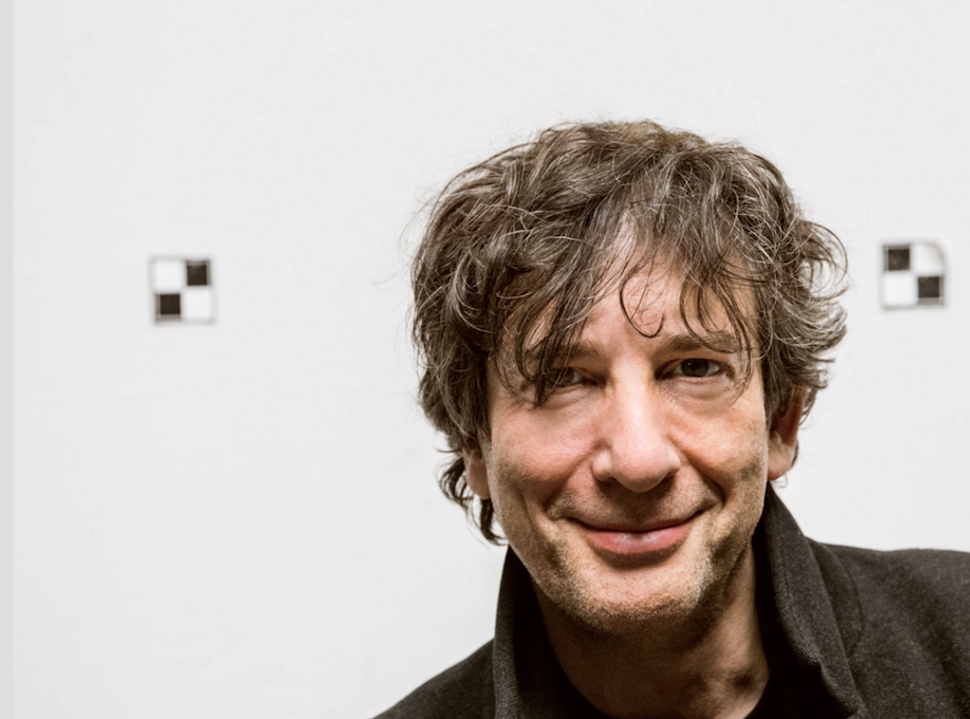The Secret Jewish History Of Neil Gaiman And ‘American Gods’

Neil Gaiman’s “American Gods” Image by Starz
According to Neil Gaiman, advance reviews for ‘American Gods,” mini-series based on his novel, are “kind of astonishing.”
The central premise of “American Gods” (which debuts on Starz April 30) is that immigrants coming to America brought their mythology and gods with them. But over generations, the newcomers succumbed to different deities, technology, money, celebrity and media, among others.
Its central character is Shadow Moon (Ricky Whittle), who is released from prison a few days early because his wife died in an automobile accident. Bereft and without job prospects, he signs up as bodyguard for Mr. Wednesday (a brilliant as always Ian McShane) and the two travel the country.
Mr. Wednesday is attempting to rally the old gods to reclaim their relevance, and along the way we meet a genie, a large leprechaun, and a fire-breathing buffalo among characters (in every sense of the word).
This unusual plot line leads me to ask Gaiman an obvious question: “Did you feel different as a child growing up?”
“I’m not sure there is a child who feels different from other kids,” he said. “I was the same way. I didn’t think I was different from the other kids.”
There’s no rancor in his voice. No suggestion that he thinks the question stupid or impertinent. “Honestly, it wasn’t until was in my late 30s, by which time I had three children all of [whom] reached the age of eight or nine without alphabetizing their library.”
Yes, young Neil alphabetized his entire book collection — by author. He remembers at around age seven agonizing over where to put the author of one of his favorites, “Myths of the Norsemen,” Roger Lancelyn Green. Was he an “L” or a “G”?
Gaiman comes from a Jewish family who became Scientologists, sort of. “My family became Jewish Scientologists, which I would say is different. They got no less Jewish,” he said.
Making his young life even more interesting, he recalls, was “the fact that I was going to a High Church of England school. [This was] incredibly weird because at that point I’m the only one getting hundreds on all the religious studies tests. I knew the New Testament cold.”
Gaiman’s Jewish education started when he was a little older than 11. “I started being shipped up to my relations in North London for my bar mitzvah and Hebrew lessons. The great thing was it was an incredibly frum cantor who was easily sidetracked onto the highways and byways of Jewish mythology.”
“I’m a terrible Jew these days, though I love Judaica,” Gaiman said. “I’ve never had that hardcore sense of beliefs necessary to be an atheist. Atheist friends of mine really have faith in what they don’t believe in. I, on the other hand, am wishy-washy.”
Gaimnan says he has been making up stories since he was a child, and sees no end in sight.
“I think I will run out of life before I run out of ideas,” he said. “I have a giant backlog of books that need to be written and stories that need to be told. I think what will happen is one day I will run out of ideas and that would be bad or, better, I will be mid-book when I die.”















